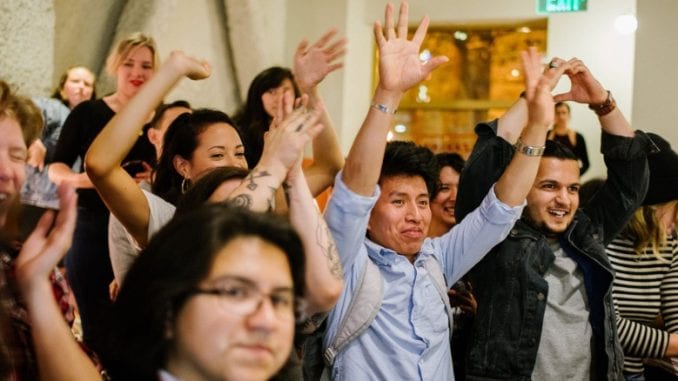
Coffee communities host throwdowns, create programs for professional development, and bring together the local barista population—here’s how you can build a community in your hometown today!
BY ASHLEY RODRIGUEZ
BARISTA MAGAZINE ONLINE
All photos by Jenn Chen
There are some cities with strong and active coffee communities—think of the New Gotham Coffee Community based in Chicago, or the TNT NYC folks who organize throwdowns all over New York. But if you’re in a city that doesn’t have a governing board or a group of folks organizing events, it can be difficult to build a community. However, with a little help from your fellow baristas and local coffee shops, you can build a coffee community that hosts events, supports professional development, and ensures that baristas from all over your community feel heard and stimulated.
Jenn Chen, a freelance coffee marketer based in San Francisco, has a lot to say on the subject; she’s put together both the New Gotham Coffee Community and the Bay Area Coffee Community (BACC)—the latter of which she helps lead as vice president. Jenn has written an article on her website about how to build a coffee community, and one of the biggest takeaways is to find like-minded individuals who share your goals of hosting events and building structures to encourage community within the coffee industry.
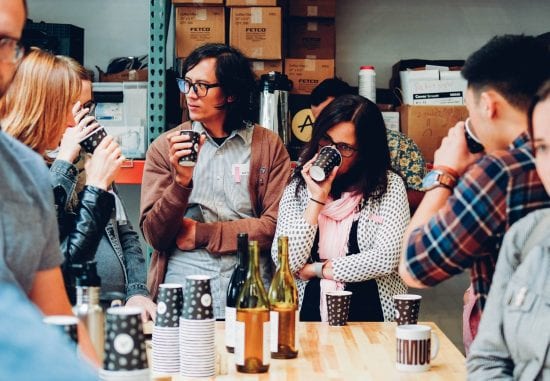
“When Talya [Strader, who now serves as the BACC president] and I left Chicago, there was a board structure that was put into place,” Jenn shares of her experiences. “Before the board structure, it was mainly Talya pulling together throwdowns every month, which you can imagine, is very draining. The issue with any grassroots community organization is that it’s made up of volunteers.” Jenn explains that one of the first things you should do when starting to build a coffee community is to find people who are interested in doing the same. “Everyone has a job, and the organization comes in second. You need to find people who can commit time to the organization—and if you’ve never done this type of event organizing before, you don’t realize how taxing it can be,” Jenn notes.
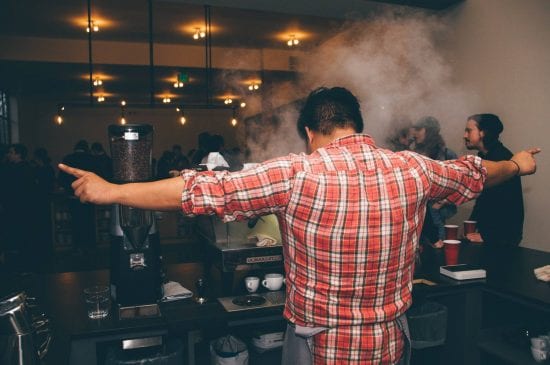
If you’re unsure where to start looking for like-minded folks, try visiting your favorite local cafes. “Something that is great to do is to actually go to the cafés in your town,” shares Emily Dobies, a board member for the BACC and wholesale trainer for Ritual Coffee. “Even if you just gather emails to contact people about events or starting a group with you, it’s a great way to meet people and see how much interest you have!”
Once you get people interested in building a community, it’s important to set yourself up for success; some events will be more popular than others, so try to pick something your community will respond well to. “If you are the one creating the group, start with an event that is small/easy/low-cost and can even be at your home or community center,” Emily shares. “In Buffalo, we started with an event at someone’s house comparing plastic, ceramic and metal v60s for taste and everyone brought a little coffee from their shop! It was great to discuss and hang out! It doesn’t have to be a latte art competition!”
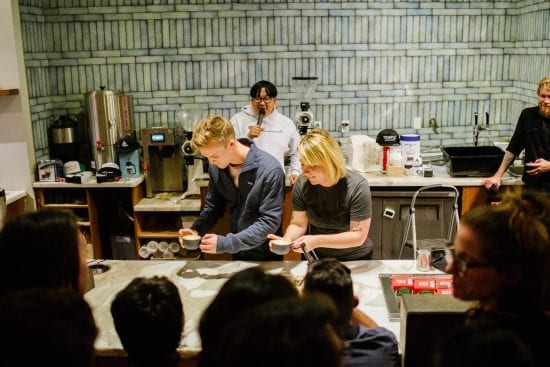
If you do decide to host a latte art throwdown or some other sort of competition—which tend to be popular—make sure you pick a location that is easy for all members to get to. And if you really want people to attend, make sure that the prizes are good or that the charity you plan to donate to resonates with your community.
Once you get some momentum with a few events, branching out of competitions and throwdowns will ensure that members from all across the coffee community feel included—roasters and people who don’t work on the floor might feel like throwdowns aren’t for them since they don’t make coffee for customers every day. “I think throwdowns are always a hit with the coffee community; they bring in baristas from all the cafés and are a surefire way of drawing in a crowd. But they unfortunately exclude a lot of people: roasters, green buyers, owners, and so many other people who work in the industry,” Jenn notes.
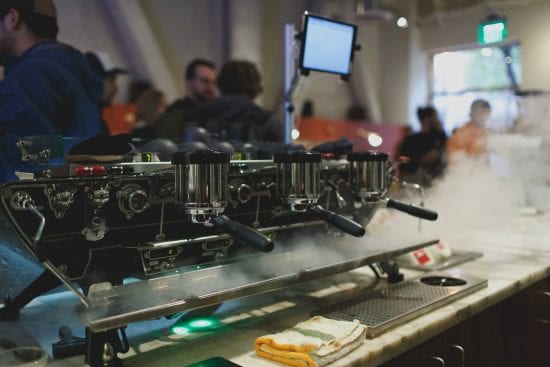
“When we revived the BACC, I wanted it to be more intentional in its events,” she adds, explaining that the BACC has hosted events from origin cuppings highlighting coffees from a particular country to taste fairs, which invite experts from other fields to talk to coffee folks about their professions. “Yes, we can do throwdowns, but we also need to host some non-throwdown social events and professional development events. Some coffee companies can’t afford to have trainers or put together palate development courses,” Jenn notes, so the events you host may be the only way a barista or coffee pro learns more about their craft.
If you’re looking for more inspiration, visit the websites of organizations like the BACC, the New Gotham Coffee Community, the San Diego Coffee Network, TNT NYC, Portland Coffee Social Club, and the Austin Coffee Society, and let us know if there are other coffee communities you admire!

